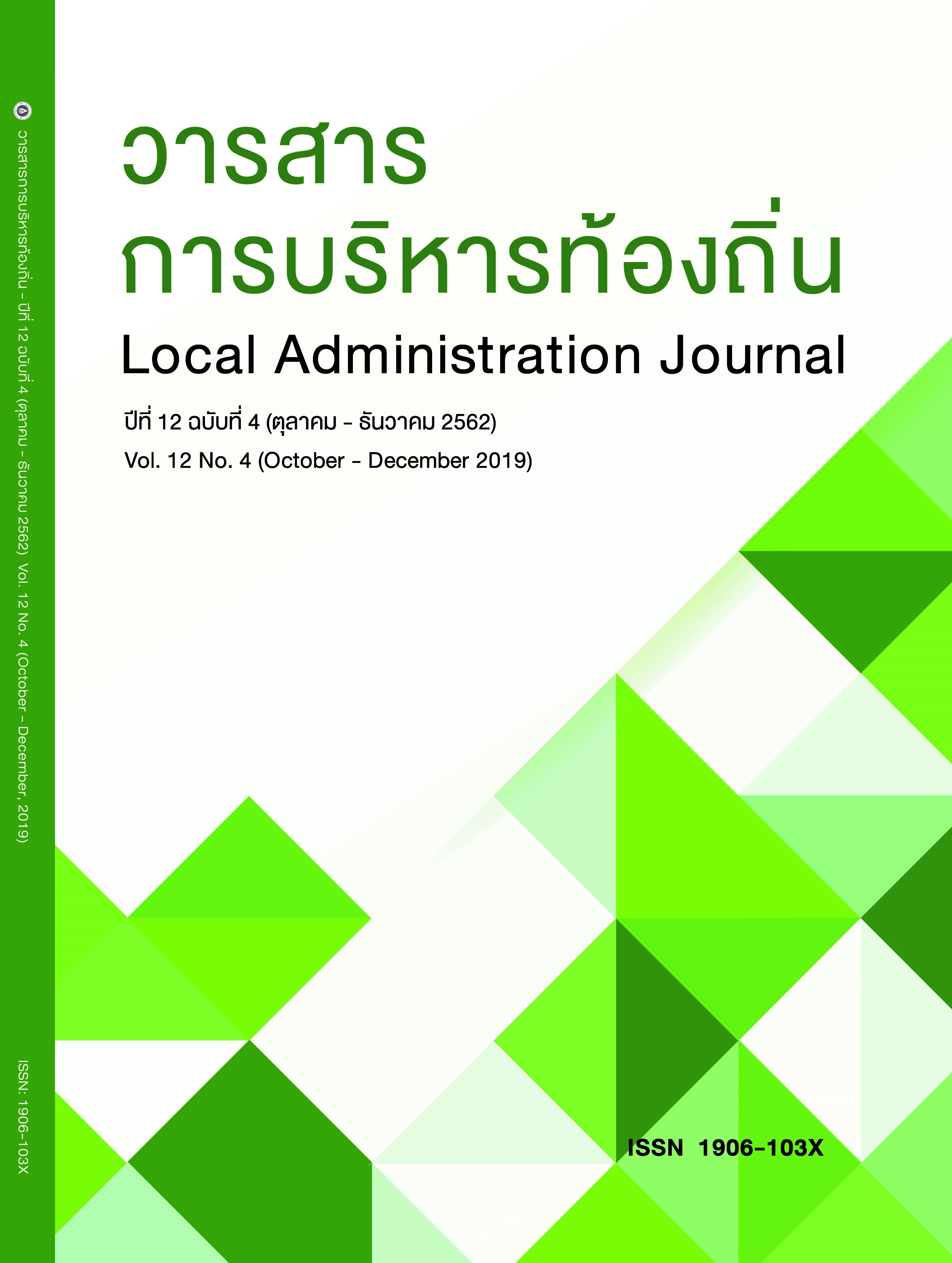The US Military Base in Afghanistan after 9/11: An Effort to Deter Pakistan's Nuclear Weapons Threats
คำสำคัญ:
Terrorism, nuclear weapons, national security, deterrenceบทคัดย่อ
Afghanistan after 9/11 prompted it to deter Pakistan's nuclear weapons threat?”. The authors employed the deterrence theory for analyzing international political phenomena. High ranking rulers of Pakistan are influenced by Islamists who sympathize Al-qaeda and Taliban. The lack of Pakistan’s nuclear weapon security controls led to leakage of technology and equipment of nuclear weapons production in international black market that might fall into the hands of terrorist groups. After 9/11, the US has settled the military base in Afghanistan to crack down Al-qaeda and Taliban and formed a new government, providing financial support and military equipment to the Afghan National Army, which is under the command of the US force and joins the task force with the US under the "Strategic Partnership" program. The US uses Afghanistan as a military base in case of Pakistan is unable to secure the nuclear weapons by itself: Afghanistan could be a launch base to attack Pakistan if Pakistan's nuclear weapons fall into the dangerous situations.
เอกสารอ้างอิง
Atal, S. (2003). Extremist, Nuclear Pakistan: An Emerging Threat?. Washington D.C.: Cato Institute.
Baruah, A. (2006, 19 August). “What the U.S. is doing to Pakistan,”. the Hindu, p.11.
Jindal, N. (1987). “War as a Political Weapon in the Nuclear Age”. New Delhi: Intellectual Publishing House.
Jose, J. & Escobar, S. (2007). “Middle East Salafism’s influence and Radicalization of Muslim Communities in Europe”. in Barry Rubin (Ed.), Political Islam: Critical Concepts in Islamic Studie.(pp.83-84) London: Routledge Taylor Francis Group.
Kampani, G. (2016). “Nuclear Watch—Pakistan: The Sorry Affairs of the Islamic Republic”. from http://www.nti.org/analysis/articles/nuclear-watch-pakistan.
Kampani, G. (2002). Second tier proliferation: The case of Pakistan and North Korea. The Nonproliferation Review, 9(3), 107-116.
Karl, D. J. (1997). Proliferation pessimism and emerging nuclear powers. International Security, 21(3), 87-119.
Keylor, W. R. (2003). “A world of Nations: The International Order since 1945”. New York: Oxford University Press.
Mahmood, S. (2000). “Pakistan Political Roots & Development 1947-1999”. Oxford: Oxford University Press.
Mandaville, P. (2007). “Global Political Islam”. London: Rout ledge.
Pakistan Rules Out Change in Nuke Policy. (2016, 2 March). the Hindu. Retrieved from http://www.thehindu.com/news/international/no-change-in-pakistan-policy-on-nuke-weapons-stockpile-sartaj-aziz/article8304103.ece
Patrick, S. (2006). Weak states and global threats: Fact or fiction? Washington Quarterly, 29(2), 27-53.
Prashad, V. (2016, March 18). “The World after Obama”. Frontline. Retrieved from http://www.frontline.in/world-affairs/the-world-after-obama/article8299429.ece#test
Rafique, N. (2004). “NATO’s Expanding Role and its Implications for South Asia”. Strategic Studies, 24(2),41-57.
Roy, O. (2001). “Has Islamism a Future in Afghanistan?” in Maley, William (Ed.), Afghanistan and the Taliban: The Rebirth of Fundamentalism. (pp.201-429), New Delhi: Penguin Books.
Saikal, A. (2004). Modern Afghanistan a History of Struggle and Survival. London: I.B.Tauris.
Spanier, J. (1989). “American Foreign Policy since World War II”, (11thed.) New Delhi: Tata MC Graw-Hill Edition.
Stewart, P. & Emmot, R. (2016, June 15). “U.S. may reconsider Afghanistan troops cuts as NATO Pledges support”. Reuters . Retrieved from http://www.reuters.com/article/us-nato-afghanistan-withdrawal-idUSKCN0Z110C
Stiles, K. W. (2006). “Case Histories in International Politics”. (4thed.) New York: Pearson& Longman.
Suhrke, A. (2009). “The Dangers of a Tight Embrace: Externally Assisted State Building in Afghanistan”. in Paris, Roland and Sisk, Timothy D. (Eds.), The Dilemmas of State Building: Confronting the Contradictions of Postwar Peace Operations. (pp.80-364) London: Routledge.
Translated Thai Reference
Voice tv21, (2012). NATO confirmed to withdraw troops from Afghanistan in 2014. Retrieved December 20, 2018 from http://news.voicetv.co.th/world/39674.html, (In Thai)
ไฟล์ประกอบ
เผยแพร่แล้ว
รูปแบบการอ้างอิง
ฉบับ
ประเภทบทความ
สัญญาอนุญาต
บทความทุกเรื่องที่ได้รับการตีพิมพ์ทั้งรูปเล่มและบทความออนไลน์ เป็นลิขสิทธิ์ของวิทยาลัยการปกครองท้องถิ่น มหาวิทยาลัยขอนแก่น



